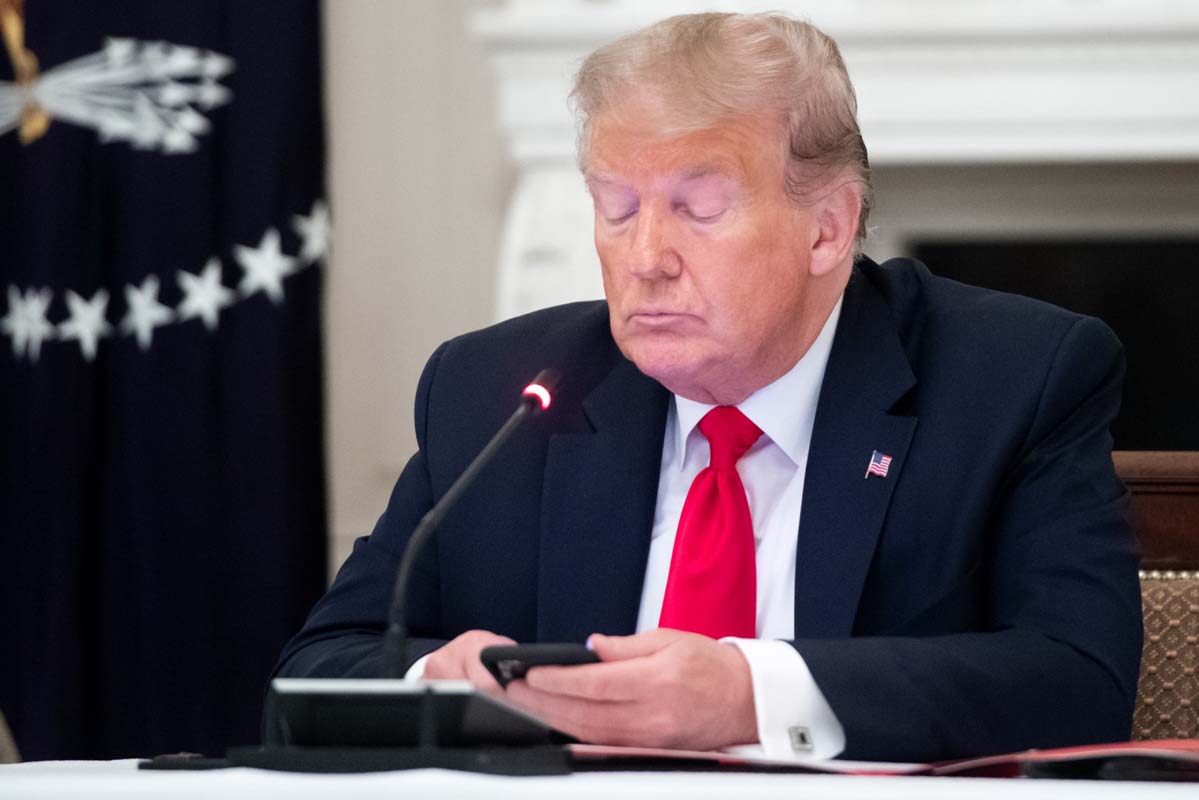
403
Sorry!!
Error! We're sorry, but the page you were looking for doesn't exist.
Trump Warns of "National Security Catastrophe" Over Tariff Ruling
(MENAFN) President Donald Trump has issued a stark warning that America confronts a "national security catastrophe" should the Supreme Court strike down his controversial tariff program imposed on major trade partners earlier this year.
The tariff offensive began in April, with Trump accusing international partners of engineering unjust trade disparities. Branding the levies as a "reciprocal" strategy to extract favorable trade conditions, the president invoked the International Emergency Economic Powers Act (IEEPA) of 1977 as his legal foundation. This statute empowers presidents to control or prohibit international commerce and financial dealings when declaring a national emergency stemming from external threats. Critics in Congress have condemned the approach, arguing it threatens to undermine the nation's economic stability.
By late summer, the US Court of Appeals determined that Trump had overstepped his constitutional authority by leveraging the IEEPA to impose tariffs, emphasizing that such expansive trade measures require congressional authorization. The appellate court withheld cancellation of the duties while awaiting Supreme Court intervention.
On Monday, Trump took to Truth Social to sound the alarm about potential fallout from an unfavorable high court verdict.
"The actual number we would have to pay back in tariff revenue and investments would be in excess of $2 trillion, and that, in itself, would be a national security catastrophe," he wrote. The president provided no methodology behind his $2 trillion projection. US Trade Representative Jamieson Greer previously informed media that Trump's tariff initiative has collected approximately $100 billion thus far.
During last week's oral arguments, Supreme Court justices scrutinized Trump's legal standing to levy tariffs through the IEEPA, legislation that authorizes presidents to freeze holdings, impose sanctions, and curtail trade but contains no explicit tariff provisions. Several justices noted, however, that the statute permits presidential regulation of imports "by means of licenses or otherwise," suggesting that "licenses"—which typically require fees for importing merchandise—bear economic similarity to tariffs. Justice Amy Coney Barrett warned that invalidating the tariffs "could be a mess" for judicial systems handling importer reimbursements.
The Supreme Court's decision timeline remains undisclosed, though legal experts anticipate a ruling by July 2026, coinciding with the conclusion of the court's current term.
The tariff offensive began in April, with Trump accusing international partners of engineering unjust trade disparities. Branding the levies as a "reciprocal" strategy to extract favorable trade conditions, the president invoked the International Emergency Economic Powers Act (IEEPA) of 1977 as his legal foundation. This statute empowers presidents to control or prohibit international commerce and financial dealings when declaring a national emergency stemming from external threats. Critics in Congress have condemned the approach, arguing it threatens to undermine the nation's economic stability.
By late summer, the US Court of Appeals determined that Trump had overstepped his constitutional authority by leveraging the IEEPA to impose tariffs, emphasizing that such expansive trade measures require congressional authorization. The appellate court withheld cancellation of the duties while awaiting Supreme Court intervention.
On Monday, Trump took to Truth Social to sound the alarm about potential fallout from an unfavorable high court verdict.
"The actual number we would have to pay back in tariff revenue and investments would be in excess of $2 trillion, and that, in itself, would be a national security catastrophe," he wrote. The president provided no methodology behind his $2 trillion projection. US Trade Representative Jamieson Greer previously informed media that Trump's tariff initiative has collected approximately $100 billion thus far.
During last week's oral arguments, Supreme Court justices scrutinized Trump's legal standing to levy tariffs through the IEEPA, legislation that authorizes presidents to freeze holdings, impose sanctions, and curtail trade but contains no explicit tariff provisions. Several justices noted, however, that the statute permits presidential regulation of imports "by means of licenses or otherwise," suggesting that "licenses"—which typically require fees for importing merchandise—bear economic similarity to tariffs. Justice Amy Coney Barrett warned that invalidating the tariffs "could be a mess" for judicial systems handling importer reimbursements.
The Supreme Court's decision timeline remains undisclosed, though legal experts anticipate a ruling by July 2026, coinciding with the conclusion of the court's current term.

Legal Disclaimer:
MENAFN provides the
information “as is” without warranty of any kind. We do not accept
any responsibility or liability for the accuracy, content, images,
videos, licenses, completeness, legality, or reliability of the information
contained in this article. If you have any complaints or copyright
issues related to this article, kindly contact the provider above.


















Comments
No comment